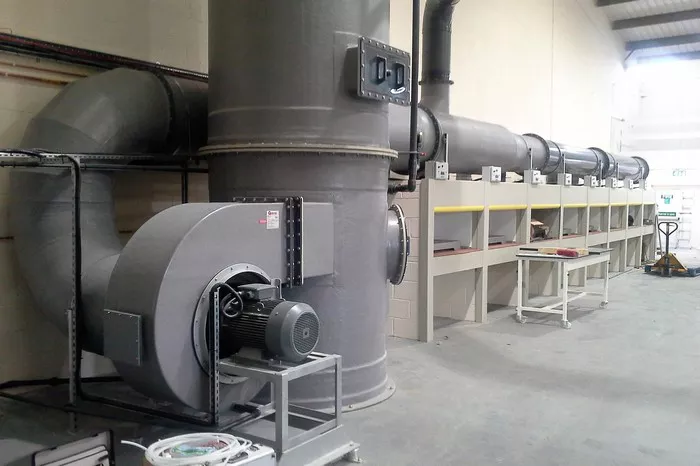In recent years, concerns about indoor air quality have escalated, prompting many to seek solutions to improve the air they breathe. One technology that has gained attention is air scrubbers. But are air scrubbers truly effective in purifying indoor air? In this comprehensive guide, we delve into the science behind air scrubbers, their effectiveness, and considerations for choosing the right one for your needs.
Understanding Air Scrubbers
Air scrubbers are devices designed to remove particles, gases, and other contaminants from the air in enclosed spaces. They work by drawing air through a series of filters or purification mechanisms, trapping pollutants and releasing clean air back into the environment. These devices are commonly used in residential, commercial, and industrial settings to improve indoor air quality and promote healthier living and working conditions.
How Do Air Scrubbers Work?
Air scrubbers employ various technologies to purify air, including:
1. HEPA Filtration: High-Efficiency Particulate Air (HEPA) filters are capable of capturing particles as small as 0.3 microns with high efficiency, making them effective against dust, pollen, pet dander, and other airborne allergens.
2. Activated Carbon Filtration: Activated carbon filters adsorb gases, odors, and volatile organic compounds (VOCs), effectively removing them from the air.
3. UV-C Light: Some air scrubbers incorporate ultraviolet germicidal irradiation (UVGI) technology, which uses UV-C light to neutralize bacteria, viruses, and mold spores by disrupting their DNA.
4. Ionic Purification: Ionic air purifiers release charged ions into the air, which attach to airborne particles, causing them to clump together and fall out of the air or get trapped in a filter.
Evaluating the Effectiveness of Air Scrubbers
The effectiveness of air scrubbers depends on various factors, including the specific pollutants present, the size of the space, and the quality of the device. However, when properly sized and maintained, air scrubbers can significantly improve indoor air quality by reducing:
1. Particulate Matter: HEPA filters are highly effective at removing airborne particles, including dust, smoke, and pollen.
2. Gases and Odors: Activated carbon filters excel at adsorbing gases, odors, and VOCs, making them beneficial for environments with chemical pollutants or unpleasant smells.
3. Microorganisms: UV-C light can help eliminate bacteria, viruses, and mold spores, reducing the risk of respiratory infections and allergic reactions.
Choosing the Right Air Scrubber
When selecting an air scrubber, consider the following factors:
1. Room Size: Choose a unit that is appropriately sized for the room or space you intend to purify to ensure optimal performance.
2. Filtration Efficiency: Look for air scrubbers with HEPA filtration and activated carbon filters for comprehensive air purification.
3. Additional Features: Consider additional features such as UV-C light or ionization based on your specific needs and preferences.
4. Maintenance Requirements: Regular maintenance, including filter replacement and cleaning, is essential for ensuring continued effectiveness.
Conclusion
In conclusion, air scrubbers can be effective tools for improving indoor air quality by removing particles, gases, and microorganisms from the air. However, their effectiveness depends on factors such as the type of pollutants present and the quality of the device. By understanding how air scrubbers work and selecting the right one for your needs, you can create a healthier and more comfortable indoor environment for yourself and your loved ones.
FAQs
Q1: Can air scrubbers remove cigarette smoke odor?
Yes, air scrubbers equipped with activated carbon filters are effective at removing cigarette smoke odor, as activated carbon has a high adsorption capacity for gases and odors.
Q2: Are air scrubbers noisy?
The noise level of air scrubbers can vary depending on the model and fan speed. However, many modern air scrubbers are designed to operate quietly, making them suitable for use in residential and commercial spaces.
Q3: How often do I need to replace the filters in an air scrubber?
The frequency of filter replacement depends on factors such as the manufacturer’s recommendations, the level of air pollution, and the usage patterns. Generally, HEPA filters may need to be replaced every 6 to 12 months, while activated carbon filters may last 6 to 18 months, but it’s essential to follow the manufacturer’s guidelines for optimal performance.

